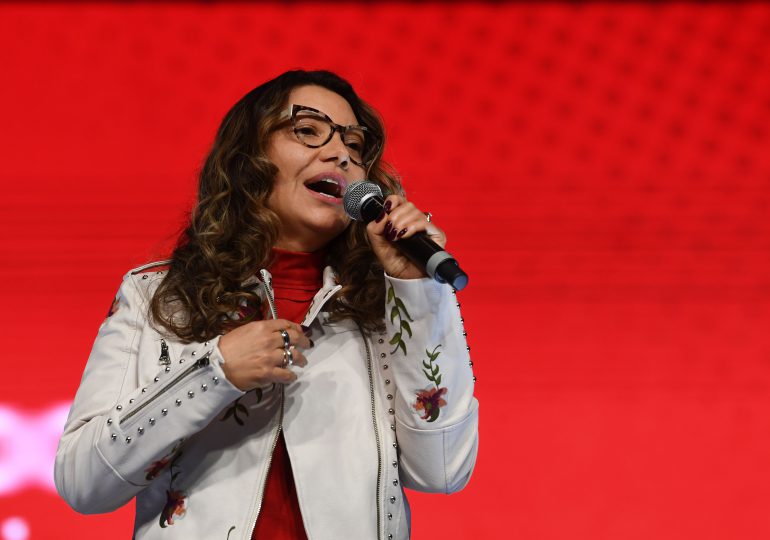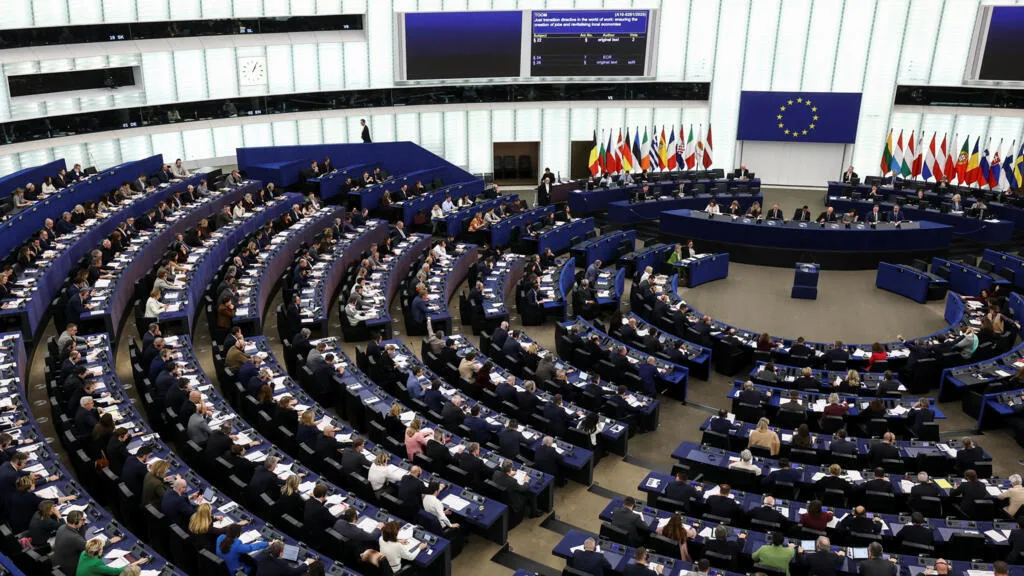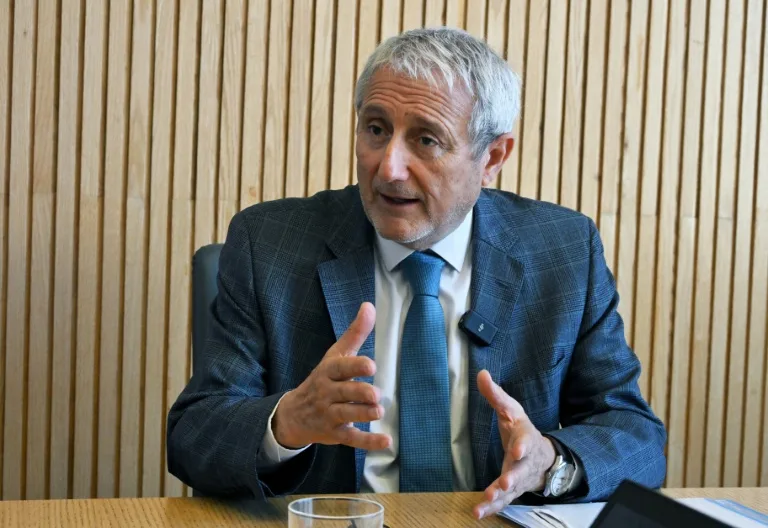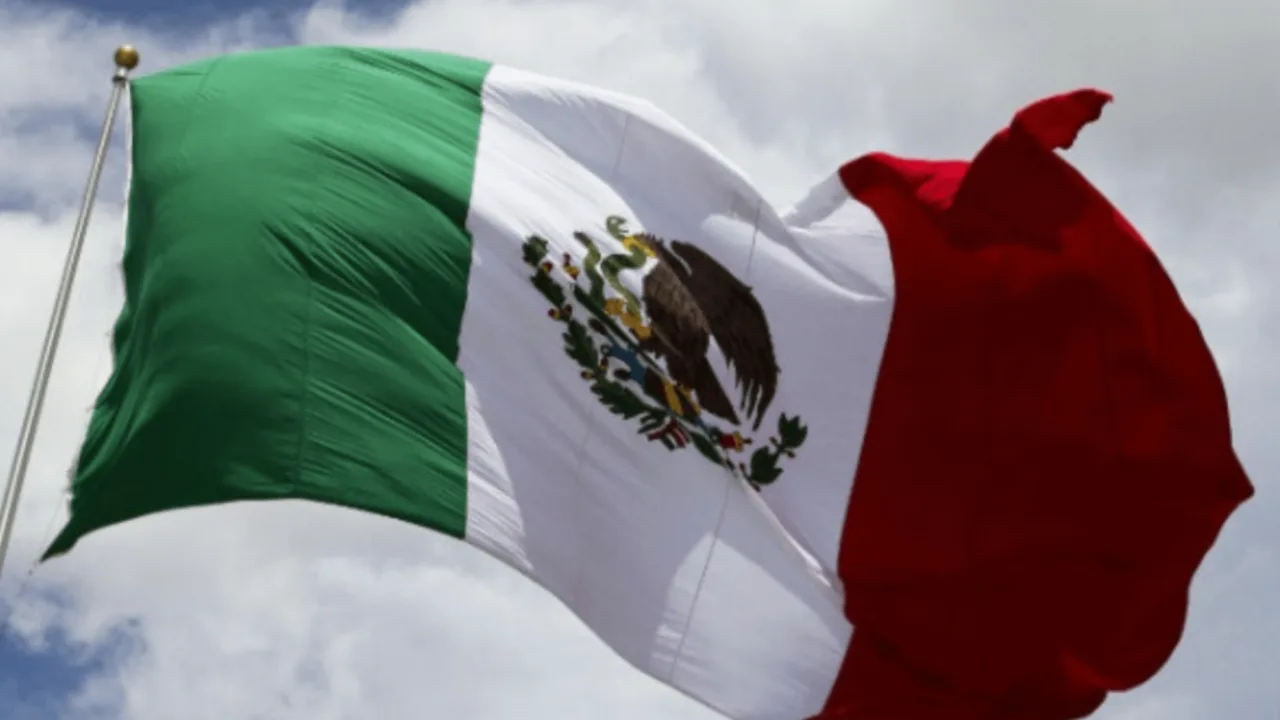International
Rosangela da Silva hopes to be a different kind of Brazilian first lady

AFP | Eugenia Logiuratto
Rosangela da Silva, a sociologist and left-wing activist who married Luiz Inacio Lula da Silva in May, has promised to give new meaning to being first lady if her husband wins Brazil’s election.
“I am as in love as if I were 20 years old,” the former two-term president has said of his wife, a long-time member of the Workers Party.
He is 76, she 56. This age difference seems to have breathed new life into Lula, a leftist icon in Brazil. He was deeply saddened by the 2017 death of Marisa Leticia, his wife of 30 years, with whom he has four children.
His first wife, Maria de Lourdes, died in 1971.
“When you lose your wife, and you think, well, my life has no more meaning. Then suddenly, this person appears who makes you feel like you want to live again,” Lula told Time magazine in an interview published in May.
Rosangela da Silva was born in the south of Brazil and earned a sociology degree from the university in Curitiba, capital of Parana state. She worked there for 20 years for Itaipu Binacional, a public utility that runs the Itaipu dam, one of the world’s biggest.
In 1983 she joined the Workers Party, which Lula had co-founded two years earlier.
– A kiss outside prison –
Brazilian press reports say the two have known each other for decades, but Lula’s press people say their romance began only in late 2017 at an event with left-leaning artists.
But the love affair between this smiling woman with long chestnut hair and the aging lion of the Brazilian left became widely known only in May 2019, while Lula was serving a prison sentence on a corruption conviction.
“Lula is in love, and the first thing he wants to do when he gets out of prison is get married,” said one of his lawyers after a visit with Lula.
In the end, the two wed only this year. It was a discreet ceremony — by Lula’s standards. The 200 guests included celebrities like singer Gilberto Gil, who had served as culture minister under Lula.
While Lula was in prison, “Janja,” as Rosangela is nicknamed, would pen affectionate tweets about him. “All I want to do is hug you and cuddle with you non-stop,” she wrote on his 74th birthday.
In November 2019, shortly after Lula’s release from prison, they shared a kiss before a crowd gathered outside the prison in Curitiba, where Lula had spent 18 months locked up.
While she has been active in Lula’s campaign, on stage and on social media, Rosangela da Silva is very private with her personal life. The magazine Veja says she was previously married for more than 10 years and has no children.
– Campaign song –
“I want to give new meaning to the role of first lady, by focusing on topics that are priorities for women, such as food insecurity or domestic violence,” she said last month.
Since the Supreme Court vacated Lula’s conviction in early 2021, allowing him to run for president again, Janja has traveled with him often, including to other countries.
She was one of the stars of his campaign kickoff on May 7, playing a new version of the song that was his signature tune during his first presidential campaign in 1989.
And she is helping to organize a campaign event on Monday bringing together celebrities, intellectuals, social activists and top Brazilian musicians.
International
MEPs Approve Plan That Could Fast-Track Rejection of Some Asylum Claims

With an overwhelming majority of 408 votes in favor, the European Parliament backed the creation of a list of safe countries of origin for asylum seekers.
People coming from Colombia, Egypt, India, Bangladesh, Kosovo, Morocco and Tunisia who apply for asylum in the European Union could see their requests rejected on the grounds that the bloc’s 27 member states consider those nations safe. Applicants would have to prove their individual circumstances, showing evidence of persecution or specific risks if they were to return.
At the same time, while their applications are processed or their return is arranged, migrants could be transferred to third countries outside the EU if the bloc has an agreement with them, if the individuals previously transited through those nations, or if they have family or cultural ties there. The measure provides legal cover for the creation of processing centers beyond EU territory, similar to an initiative previously pursued by Italian Prime Minister Giorgia Meloni in Albania.
Tuesday’s vote reflects the tightening of European migration policy in recent years, despite asylum applications having fallen by more than 20% last year and the issue not ranking among citizens’ top concerns, according to recent surveys.
International
Chile Unveils Latam-GPT to Give Latin America Its Own AI Model

Chile on Tuesday launched Latam-GPT, an initiative aimed at providing Latin America with its own artificial intelligence model in a field largely dominated by U.S. companies, while seeking to reduce biases identified in existing systems.
The project is led by Chile’s National Center for Artificial Intelligence (CENIA), a private corporation funded with public resources.
Latam-GPT is backed by universities, foundations, libraries, government agencies and civil society organizations from across the region, including Chile, Uruguay, Brazil, Colombia, Mexico, Peru, Ecuador and Argentina.
“Thanks to Latam-GPT we are positioning the region as an active and sovereign player in the economy of the future. We are at the table — we are not on the menu,” President Gabriel Boric said during the presentation of the initiative on national broadcaster Televisión Nacional.
The tool aims to break down prejudices and prevent Latin America from being portrayed as a single, uniform reality, Chile’s science minister, Aldo Valle, told AFP.
The region, he added, “cannot be merely a user or passive recipient of artificial intelligence systems. That could result in losing a significant part of our traditions.”
Despite its name, the initiative is not an interactive chatbot. Instead, it is a large regional database trained on Latin American information that can be used to develop technological applications, the minister explained.
International
Mexico Rises Slightly to 141st in Global Corruption Perceptions Index 2025

Mexico improved by one point in its rating and climbed to 141st place in the 2025 Corruption Perceptions Index (CPI) published Tuesday by the anti-corruption organization Transparency International, which gave the country a score of 27 out of 100.
The slight increase in score comes after Mexico recorded its lowest CPI result in history in 2024 during the final year of former President Andrés Manuel López Obrador’s term, also scoring 27 out of 100. The CPI is widely regarded as the main global measure of perceived public-sector corruption, where 0 represents high corruption and 100 denotes very low corruption.
Within the region, Mexico ranks above only Guatemala (26), Paraguay (24), Honduras (22), Haiti (16), Nicaragua (14) and Venezuela (10), but trails key economic peers such as Brazil (35) and Chile (63).
Among the 38 member countries of the Organisation for Economic Co-operation and Development (OECD), Mexico ranks last. In the G20 grouping, it sits in the penultimate position, ahead of only Russia. Experts say Mexico’s persistently low score reflects ongoing challenges in curbing corruption and protecting public funds.
Transparency International’s report also highlights structural corruption issues that have allowed organized crime to infiltrate politics and weaken governance, as well as risks to journalists covering corruption.
-

 Central America4 days ago
Central America4 days agoSalvadoran fans plan birthday surprise for Shakira at historic show
-

 Central America3 days ago
Central America3 days agoGuatemala isolates Barrio 18 leader after attacks that killed 11 police
-

 Sports4 days ago
Sports4 days agoShakira ignites El Salvador with near sold-out residency at Mágico González Stadium
-

 International1 day ago
International1 day agoU.S. Health Department says CDC grants no longer match agency priorities
-

 International1 day ago
International1 day agoICE Arrests Reach 379,000 Under Trump, Testimony Shows Amid Minnesota Shootings
-

 International1 day ago
International1 day agoDespite homicide drop, overall deadly violence remains high in Mexico: study
-

 International1 day ago
International1 day agoJet Fuel Crisis Hits Cuba: Flights Disrupted, Air Canada Cancels Services
-

 International1 day ago
International1 day agoSheinbaum Urges Mexico to ‘Jealously’ Guard Sovereignty at Air Force Anniversary
-

 International1 day ago
International1 day agoMEPs Approve Plan That Could Fast-Track Rejection of Some Asylum Claims
-

 International1 day ago
International1 day agoMexico Rises Slightly to 141st in Global Corruption Perceptions Index 2025
-

 International1 day ago
International1 day agoChile Unveils Latam-GPT to Give Latin America Its Own AI Model


























